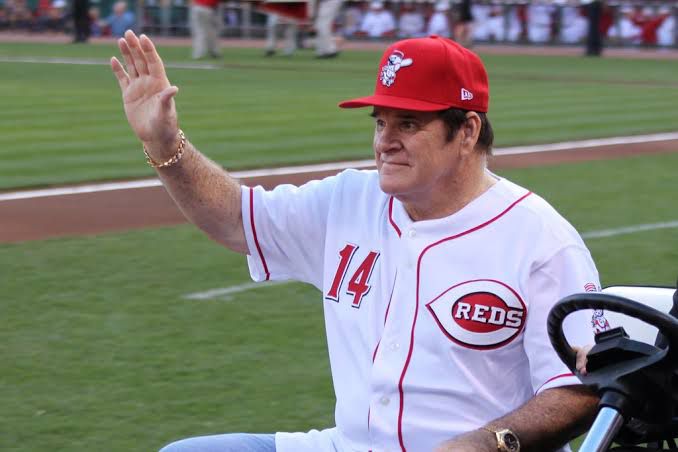
In a historic move that could redefine baseball’s treatment of its most controversial figures, Major League Baseball Commissioner Rob Manfred has officially removed Pete Rose, Shoeless Joe Jackson, and other deceased individuals from the league’s permanently ineligible list. This change, announced Tuesday, now allows these former players to be considered for Hall of Fame induction in Cooperstown.
Rose, MLB’s all-time leader in hits, and Jackson, a key figure in the notorious 1919 Black Sox scandal, were long excluded from the sport due to gambling—an offense the league has historically viewed as unforgivable. However, Manfred stated that penalties tied to integrity lose their purpose once the individual is deceased.
In a letter to attorney Jeffrey M. Lenkov, who had submitted a formal request earlier this year to have Rose’s name cleared, Manfred wrote: “A deceased person no longer threatens the integrity of the sport. A lifetime ban, by its nature, should expire with the person’s life.”
This new ruling impacts 17 people in total—16 players and one owner—among them several involved in the Black Sox case, including Eddie Cicotte and Buck Weaver. It reverses decisions made over a century ago by the league’s first commissioner, Kenesaw Mountain Landis, who banned Jackson and his teammates for allegedly fixing the 1919 World Series.
Rose, who passed away in September 2024 at 83, accepted his suspension in 1989 after an investigation determined he bet on games during his time managing the Cincinnati Reds. Though he once believed the ban might be temporary, it remained in effect until his death.
The Hall of Fame had previously barred any player on MLB’s ineligible list from being considered for induction—a policy established in 1991 and often referred to as the “Pete Rose rule.” With Manfred’s new directive, that restriction no longer applies to players who have passed away.
Under current Hall of Fame guidelines, Rose and Jackson could be eligible for enshrinement as early as 2028. Their potential inclusion depends on the Historical Overview Committee, which will select candidates for the Classic Baseball Era Committee’s vote. Induction requires 12 of 16 votes from that committee.
Attorney Jeffrey Lenkov, who has led the effort to restore Rose’s legacy for nearly ten years, expressed satisfaction on behalf of the Rose family. In December 2024, Lenkov and Rose’s eldest daughter, Fawn, met with league executives to advocate for this change.
“This has been a long time coming,” said Lenkov. “The family is proud, and Pete would have been deeply touched by this decision.”
Jane Forbes Clark, chair of the Hall of Fame board, confirmed the committee will now be able to consider Rose and Jackson for a future ballot. Their fate could be determined as soon as December 2027.
In Cincinnati—Rose’s hometown and where he played the bulk of his career—the announcement was met with joy. The Reds plan to honor Rose during “Pete Rose Night” at Great American Ball Park. He remains one of the most statistically dominant players in MLB history, holding records for hits (4,256), games played (3,562), and more.
Hall of Famer and former teammate Mike Schmidt applauded the decision, calling it “a great day for the sport.”
Jackson, who posted a .356 lifetime batting average—fourth highest in MLB history—has long been defended by fans who viewed his punishment as excessive. Despite taking $5,000 from gamblers, Jackson played exceptionally in the 1919 World Series, hitting .375 with no errors and even hitting the series’ only home run.
Advocates, including South Carolina legislators, have pushed for decades to see Jackson recognized. But his status on the ineligible list always blocked that effort—until now.
Rose’s legendary career was marked by fierce determination and consistency. He collected 17 All-Star selections, three batting titles, two Gold Gloves, and won both MVP and Rookie of the Year honors. Even amid controversy, he remained a defining figure of grit and hustle.
His most recent attempt at reinstatement came in 2015, when Manfred rejected the appeal after Rose admitted he still legally wagered on baseball in Las Vegas. The commissioner ruled that Rose had not made the necessary life changes and thus posed an ongoing risk to the sport’s integrity.
A later petition filed in 2020 criticized the league’s inconsistent handling of disciplinary cases, especially in light of the Houston Astros sign-stealing scandal, which resulted in no player suspensions. That appeal was never acted upon before Rose’s death.
Adding to the momentum, former President Donald Trump announced in February 2025 that he intended to issue a posthumous pardon for Rose, arguing that the former player “only bet on his team to win.”
Now, with MLB declaring that bans end upon death, Rose, Jackson, and others once shut out of baseball history may finally earn a place among the game’s all-time greats.